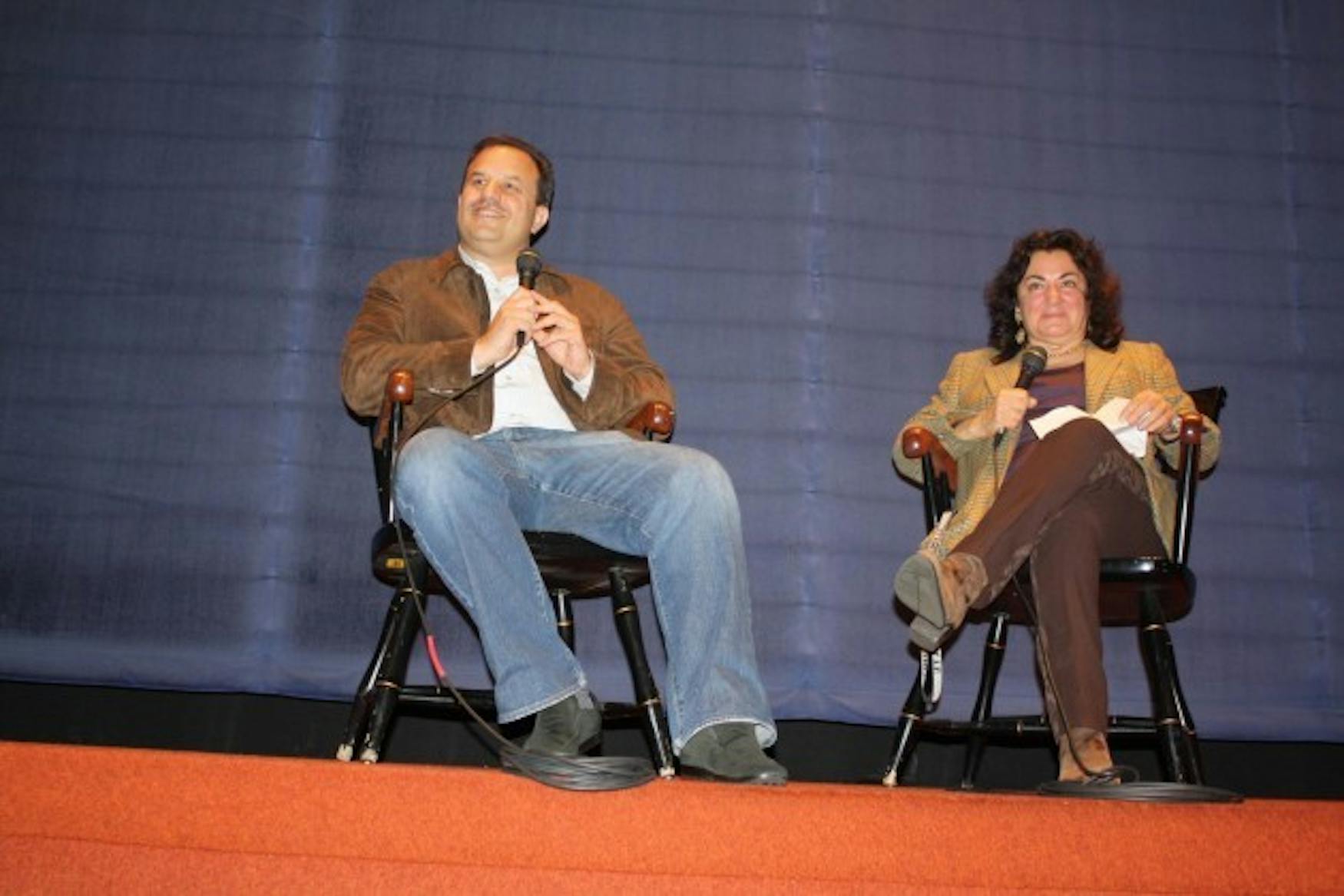Director Lurie shows his version of 'Straw Dogs'
Last Thursday, Academy Award-nominated director Rod Lurie, came to Brandeis as a part of this years' film series, sponsored by the Edie and Lew Wasserman Fund and the Film, Television and Interactive Media Program, to screen and answer questions about his newest film Straw Dogs, the remake of Sam Peckinpah's 1971 cult classic.
Walking into Wasserman Cinematheque at 7 p.m., I really wasn't sure what to expect. Unlike many remakes I have watched over the years, at the time of the screening, I had never seen the original version. I had read about the controversy surrounding the 1971 Dustin Hoffman original—the raw characters, the misogyny and, most notably, the harrowing scenes of violence and rape—but Wikipedia could only prepare me for the film to a certain degree.
Viewers beware: Straw Dogs is not an easy film to sit through.
From its first sound—a bullet shot in the forest—it draws you in. From the 50-minute mark, it grabs you by the throat and drags you along, not letting go until the 110th minute as the credits begin to roll.
Straw Dogs is a film about tensions. It begins with a violent act. A dying deer, a maniacal laugh over a fallen life. It quickly cuts to a vintage Jaguar containing a well-dressed Hollywood couple speeding down the highway. David and Amy, played by James Marsden and Kate Bosworth, respectively, are that posh Hollywood couple (he a screenwriter, she an actress). They are traveling to Amy's hometown in the Deep South so that David can find the peace and quiet he needs to complete his latest script, a movie about Stalingrad. As they pull into town they meet Charlie (played brilliantly by True Blood's Alexander Skarsgård), a brawny, tough handyman and Amy's ex-boyfriend, and his group of fellow "straw dogs"—David's term for those who peaked during their time on the high school football team and are now lost and without direction.
Charlie and his posse of not-so-merry men view David as a privileged outsider while David struggles to relate to a society built on pillars from a different world than his—high school football, hunting, lax work life and staunch religion. As the differences between this world and the one he is used to become more and more apparent, old demons arise and conflict boils over into a set of unforgiving climaxes, including one hard-to-digest rape scene.
The synopsis does the film no justice.
Beyond the story exists a film that is filled with vivid imagery, realistic characters, chilling scores and haunting cinematography. In a unique question-and-answer session following the special prescreening, Lurie opened up about some of the techniques employed in his cinematic process. Through the conversation, moderated by Prof. Alice Kelikian (HIST), the audience learned about the ways in which Lurie made this remake his own unique version, the subtexts of his cinematic decisions and his personal philosophies on life, gender and violence.
"When we first announced this movie, I got a lot of s--- from a lot of anonymous comments on the Internet," Lurie told the crowd, "I started to question whether I should make the film." "But," he continued, "it was a ‘from-the-gut movie.'… I was at a party with Dusty [Dustin Hoffman—the lead in Peckinpah's 1971 original] and he said to me, ‘Why don't you make it your own?' … He gave me his blessing."
What resulted is, in some ways, a very similar film to Peckinpah's original and in many ways quite different. Placing the film in the South—a location Lurie believes to be "a great place to shoot [with] a great smell and look … but also a place that one can believe would be conditioned to violence—poverty stricken, reliant on the violent sport of football, hunting and church listening to a violent god" —sets a different tonal perspective for the viewer than the subtleness of the England countryside in the original.
This version also takes a bit of a different perspective on the controversial topics of women and gender. While the original placed a lot of the onus on Amy (Susan George) for her rape, Lurie's version shows Bosworth's struggle and the deep physical and emotional impact it has on her. Despite seeming like an impossible task, Lurie was determined to make Straw Dogs "more feminist-oriented." Though I wouldn't necessarily call Straw Dogs female-friendly, it does have nuances of feminism—specifically, a moment during the nail-biting final scene during which the audience erupted into applause.
The complex characters and the extraordinary circumstances they are placed into are what make the film so intriguing. "It is not as simple as good triumphs over evil," Lurie explained. "Every character is flawed. It is a story of how people's principles can destroy them; it is not a black-and-white film."
As David explains about Stalingrad in the film's first few minutes, Straw Dogs is a "universal tale of survival." Through all of its edgy glory, we want to know if, in an allegory that fits almost too perfectly, David can take on Goliath—Charlie and his buddies.
The result may not be perfection, or the "genius of Peckinpah" as Lurie put it, but if nothing else, Straw Dogs is a well-made, controversial film that will leave you thinking about its subject matter days later.



Please note All comments are eligible for publication in The Justice.